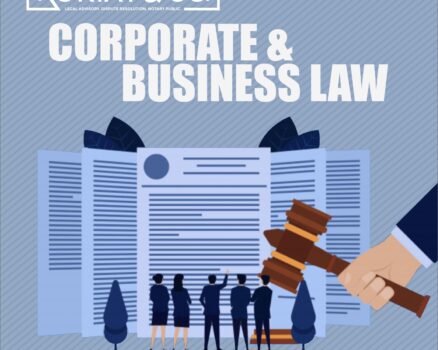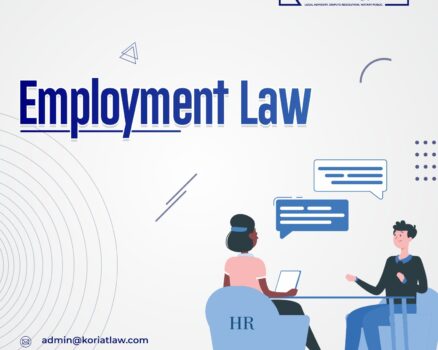
- Aggressive Regulatory Enforcement against Unregistered Money Lenders
In our earlier Koriat’s Update on Fintech Lending Law in Nigeria (January 2022), we provided update that the Federal Competition and Consumer Protection Commission (“FCCPC”) had announced that a Joint Committee (comprising federal regulators and law enforcement agencies) was set up by the Federal Government to tackle violations of consumer rights and unfair practices in the money lending industry by unregistered, unlicensed and unethical money lenders in Nigeria.
We also reported that the Joint Committee would embark on aggressive supervisions and enforcements including shutting down illegal businesses, making interim regulations and engaging mobile applications companies and commercial banks to shut down certain mobile applications and freeze the bank accounts of fintech companies that are “infringing and abusive” in their operations.
On 11th March 2022, the Joint Committee of the Federal Competition Consumer Protection Commission(“FCCPC”), the Independent Corrupt Practices and other Related Offences Commission (“ICPC”), National Information Technology Development Agency (“NITDA”), and the Nigerian Police (“Police”) raided, arrested and locked the business premises of some online money lenders alleged to be unregistered and unlicensed but operating in Lagos, Nigeria, using multiple names owned by the same person(s).
The above regulatory enforcement action was taken following almost a year-long investigation over customers’ complaints bordering on, amongst others, a breach of privacy rights by the money lenders who employ all sorts of unethical, unfair and illegal procedures for debt recovery.
Amongst many of the allegations against the raided money lenders are that the promoters were lending money with unregistered business name which is an illegal activity (see how to register a company with the Corporate Affairs Commission) and failed to obtain the necessary operational licence provided for those seeking to do lending businesses in any part of Nigeria. See also how to obtain a money lender licence in Nigeria.
2. Notable Illegal Activities and Lending Malpractices by Money Lenders in Nigeria
The FCCP, in its primary role as consumer protection agency, has been alive to its responsibility in investigating, preventing and documenting some illegal activities and operational malpractices of online money lenders arising from the nature of various consumers’ complaints received so far by the agencies as well as the media reports of the subsector.
Although, excessive interest charges and privacy rights violations are the immediate triggers for regulatory investigations, other illegal activities and malpractices too can create potential problems for a money lending business.
From our review of the law and the developments in the lending subsector, the following are notable illegal activities and lending malpractices that may cause potential exposures to money lenders in Nigeria:
i. Failure to register a money lender company with the CAC;
ii. Failure to obtain the required state license for money lending business.
iii. Violation of borrowers’ (or other persons’) privacy rights through naming and shaming customers, calling or messaging debtors’ relations without their consent, and so on.
iv. Charging excessive interests on loans;
v. Failure to provide loan agreements and statement of loan accounts;
vi. Failure to have a registered/business address within Nigeria or relocation of business from registered address without notifying the licensing authority;
vii. Doing money lending business with proceed of crime or facilitating money laundering activities;
viii. Engaging in other conducts that are deprave, unfair and contradictory to best practices in lending business.
3. Potential Risks Associated with Illegal Activities and Lending Malpractices
There are potential civil and criminal liabilities for money lenders which engage in illegal activities and lending malpractices depending on the nature of infraction and the claims or charges filed against them. Below are some of the potential risks associated with illegal acts and lending malpractices:
i. Unending police/regulatory invitation and interrogations relating to business activities;
ii. Police/regulatory raid of money lender’s business premises;
iii. Lockdown of business premises pending investigation or compliance with regulatory directives;
iv. Arrest of money lenders’ management staff members and directors;
v. Seizure of assets and working tools such as computers, cars, cash, files, storage devices, etc.;
vi. Restriction of business bank accounts of the money lender company through regulatory orders to the money lenders’ bankers;
vii. Forfeiture of money lender’s funds that are attributed to money laundering or regarded as proceed of crime;
viii. Suspension of Mobile Apps’ operation upon regulators’ orders to global applications companies (such as Google, Apple, etc.);
ix. Refund of excessive interest charges to borrowers;
x. Payment of compensation to borrowers on the directive of regulators or court of law;
xi. Imposition of fines by regulators for violations;
xii. Imposition of jail term on directors and management staff of money lending company upon conviction by a court of law.
4. Conclusion
In order to operate a money lender business in Nigeria without hassle, it is important for the business to be properly incorporated by the CAC and the required operational licence should be obtained as well as best practices in money lending should form part of the corporate culture of the business not only in its product creation but also in terms of operational and recovery procedures.
Money lenders and other related service providers must continue to develop compliance policies and procedures to structure and implement a lending program that is consistent with consumer protection laws, data privacy laws and other regulatory standards.
Read Also:
How to register a company in Nigeria with the Corporate Affairs Commission;
and




